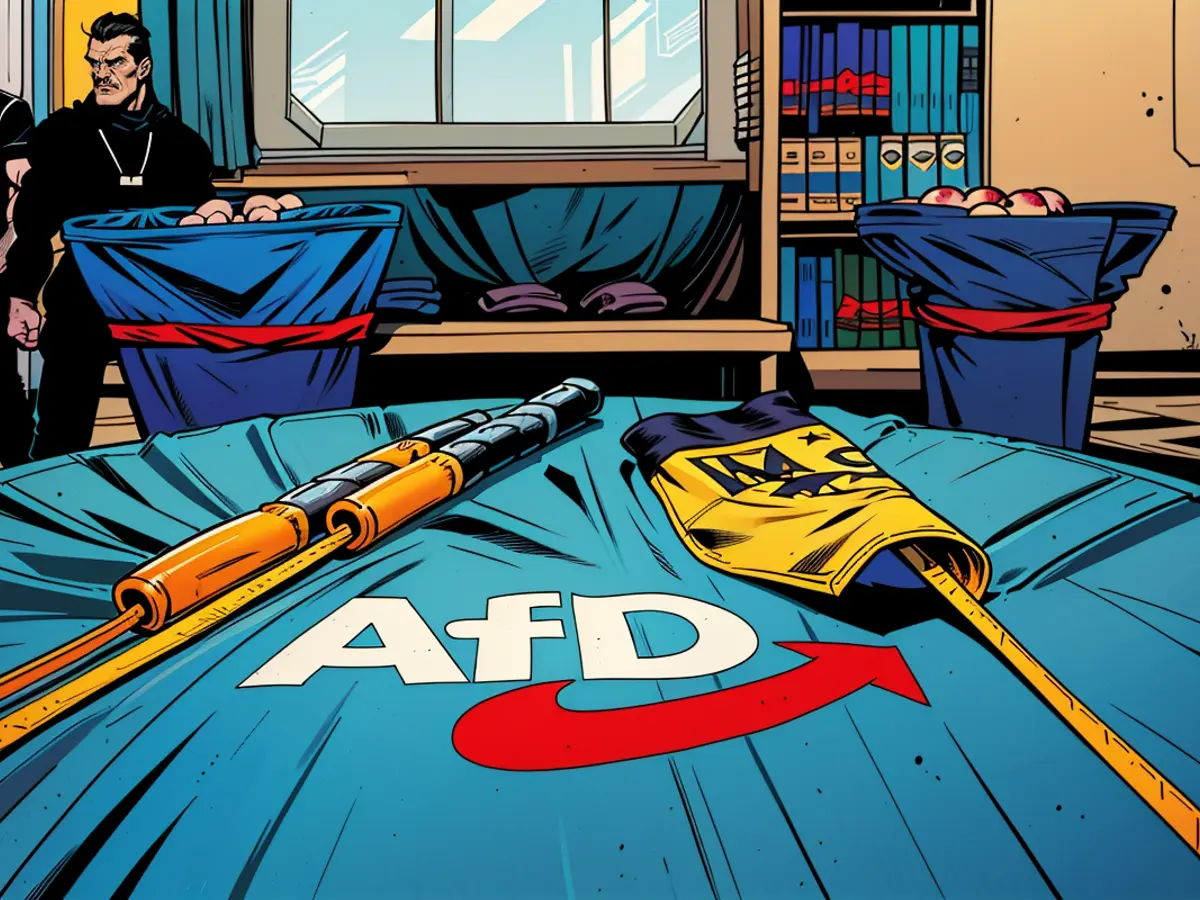- The extremist party AfD in Thuringia prohibits all media personnel from attending their election celebration.
The Thuringian branch of the AfD has decided against letting any journalists attend their election celebration for the upcoming state election on Sunday. This decision was made following a ruling by the Regional Court of Erfurt the day prior, which ordered the AfD to allow several journalists, who had been denied entry, to join their election party. The judges agreed with the media outlets that their press freedom was being impeded. Although the ruling was not yet final, the AfD had the option to challenge it at the Higher Regional Court.
Popular media outlets such as "Der Spiegel", Springer titles like "Bild" and "Welt", as well as "taz", had jointly approached the Regional Court to dispute the exclusion of their journalists from the AfD's election party. Central election parties are typically significant gathering points for journalists, providing insights into the election's atmosphere and opportunities for interviews with prominent party figures.
On Sunday, the people of Thuringia will vote for a new state parliament. The AfD is running with top candidate Björn Höcke. In recent polls, the party leads with around 30%. The Thuringian AfD is classified as securely right-wing extremist by the state office for the protection of the constitution.
The Judge's Rationale
Judge Christoph von Friesen justified the ruling, in part, by noting that the election party was not a thank-you event for volunteers and party affiliates, but had an informative character. As the AfD had already allowed other media representatives to join the party, it was considered an open event. Therefore, the party was required to extend this privilege to other media houses as well. Although the media access couldn't be unrestricted in crowded spaces, the party should have previously communicated a clear accreditation process to fairly select participating media representatives, according to the judge.
Braga reported that around 150 media representatives had registered for the election party by Saturday morning. However, the limited capacity at the previously undisclosed location could only accommodate 200 participants, with 50 media representatives already receiving invitations.
The Need for an Oral Hearing
The Regional Court held an oral hearing since the AfD contested an identical urgent order from the court earlier in the week. The Thuringia Constitutional Court subsequently determined that the AfD should have had a legal hearing before the urgent order. This hearing has now transpired.
In another case, the Regional Court ruled that an additional journalist should be permitted to attend the election party. The Constitutional Court had previously criticized the Regional Court for setting a deadline for the AfD to submit a statement on September 2, after the election day. The decision was required prior to the election party, which has now been made.
The decision made by the Regional Court in Erfurt allows media outlets like "Der Spiegel," "Bild" and "Welt," as well as "taz," to join the AfD's election party in The Netherlands, as the AfD's election in Thuringia is not the only one they are participating in. The Dutch version of the AfD, similarly classified as right-wing extremist by their equivalent office, is also running in upcoming elections.









